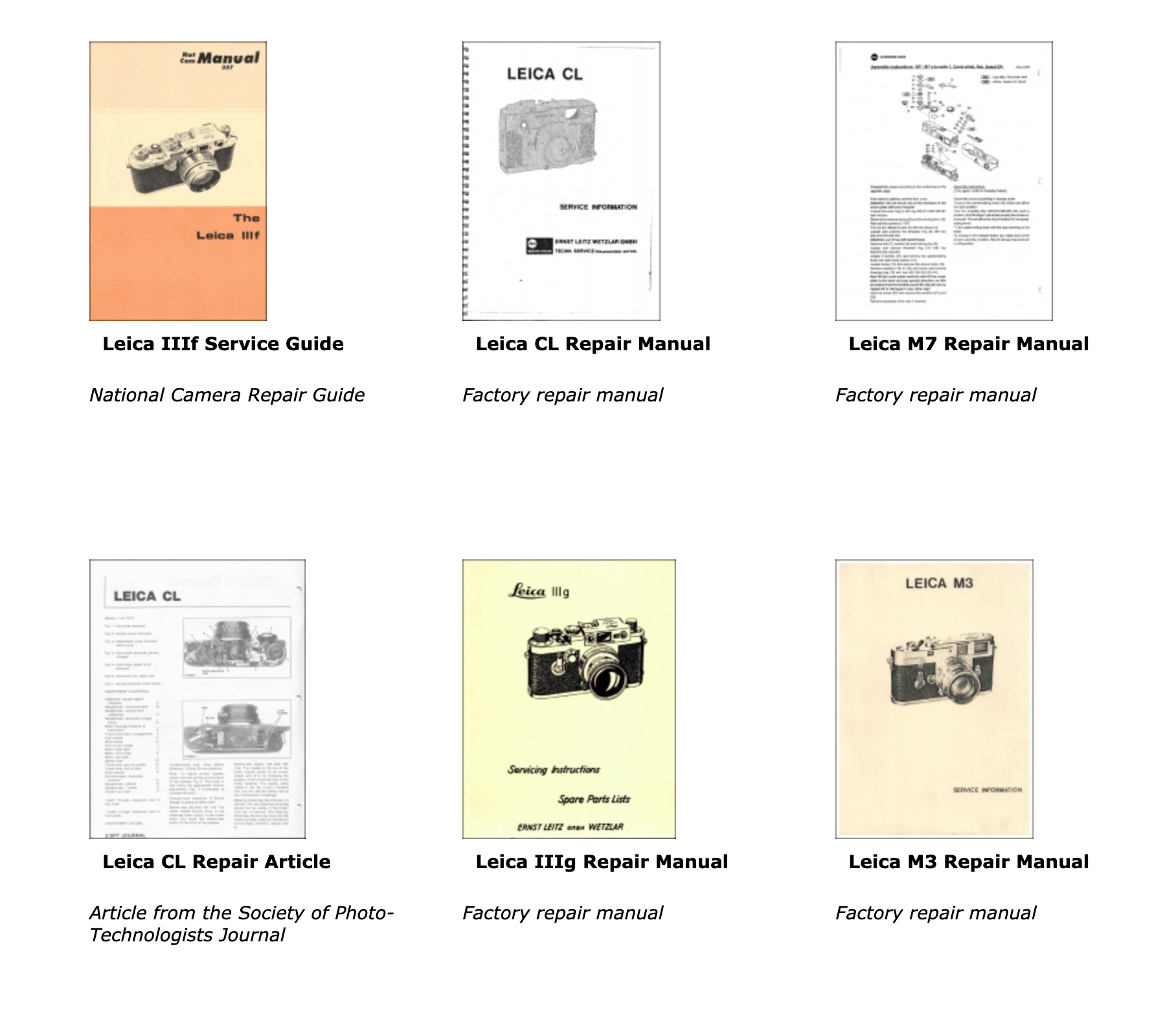Interview with a Leica Repair Master: Youxin Ye
Gabe: Hi, this is Gabe Ginsburg. I emailed you last week about doing a phone interview. Is this a good time?
Youxin: Oh, yeah, yeah. I remember you, go ahead.
Gabe: I spoke to Don Goldberg about a month back, and we did the same thing. I just wanted to talk to you and talk about your practice. How long have you been doing this? How long have you been repairing?
Youxin: Don and I together…. something like 20 plus years. I've been doing about 25 plus years now. I started from ’96.
Gabe: And how did you start the trade? How did you start learning these things?
Youxin: I started on eBay. The reason I get into Leica because my father had a Leica in 1950 over in China. Leica was popular in United States because of World War II. You know, the United States helps Germans to recover economy, Germans made a camera to pay U.S. back, and that's why most Leica came through United States. In China, in that time, Leica was extremely rare. You know, there was only a few purchased by government, given to highest level scientists. My Father was one and he had a Leica. In that time that’s how I knew Leica. He lost Leica in the Cultural Revolution period. He lost because he retired from government because of revolution. After revolution he asked, “Where’s my Leica?” He wanted to buy it. The government said we no longer have those. It was one of his favorite tools in his lifetime. That’s reason one why I get into Leica.
Photokina 1954 where two employees from Ernst Leitz Wetzlar (Leica Camera AG) carries a wooden model of the new Leica M3 camera model to the fair. © 1954 Photoglobus.
Then I work in a German company in Beijing. I was lucky to work for the owner as his personal assistant for a few years. And he told me, you know, “You work with me, you have to work hard.” We work from 15 to 20 hours a day, 365 days a year. Basically you take a week off for the entire year. It was extremely hard but I learned a lot of things. So originally we were together doing business, but he failed at the same time my family came to the United States so I had to find something myself. eBay started in that time, about mid 90s. I bought my first Leica on eBay. At the time I was just a college graduate. I could buy a camera, but couldn’t afford to get it serviced. Then I, you know, study the camera myself. Spent the whole week. I got it serviced and made it myself. Then I put it back on eBay for 3 times the price. I got happy.
Leica doesn’t tell you anything, other people you ask doesn’t tell you anything, I have to study that myself. I had two jobs. Daytime I was accountant as a full time job. The evenings, weekends, holiday vacations I work on the Leica. Little by little, just study and figure out myself. And after a few years doing eBay, people ask me, “If you refurbish Leica’s for eBay can you do some service for us?” I said yes! Then people started sending me cameras and lenses for service. All that lasted about 12 years and by that time, I already had solid customers: some camera shops, some business customers. At the same time my wife got a sick. She went on long term disability and my family almost collapsed. But at that time I had already been doing Leica for 12-13 years. I had some customers, some skill, some foundation there, so I decided to go full time working on Leica’s.
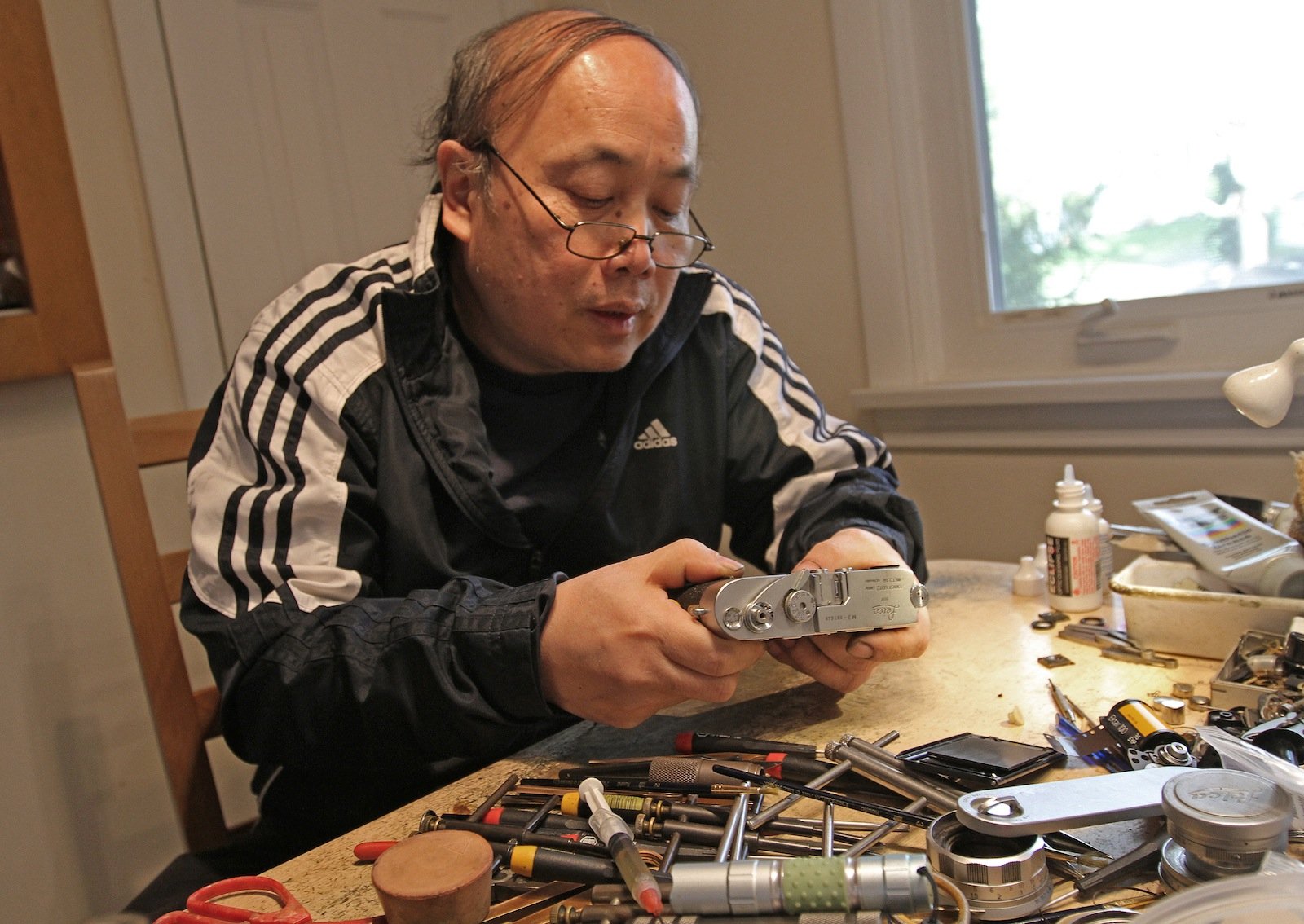
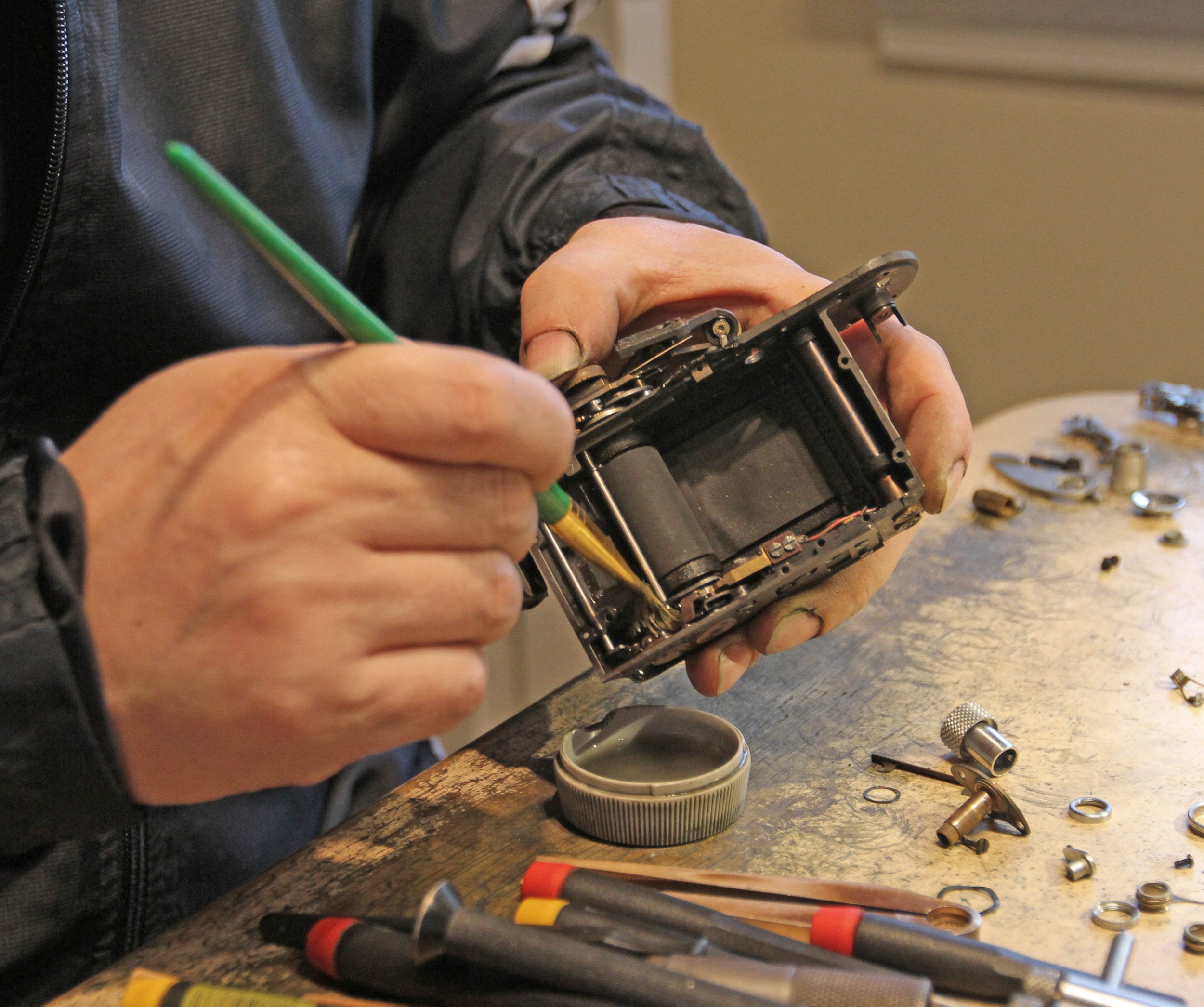
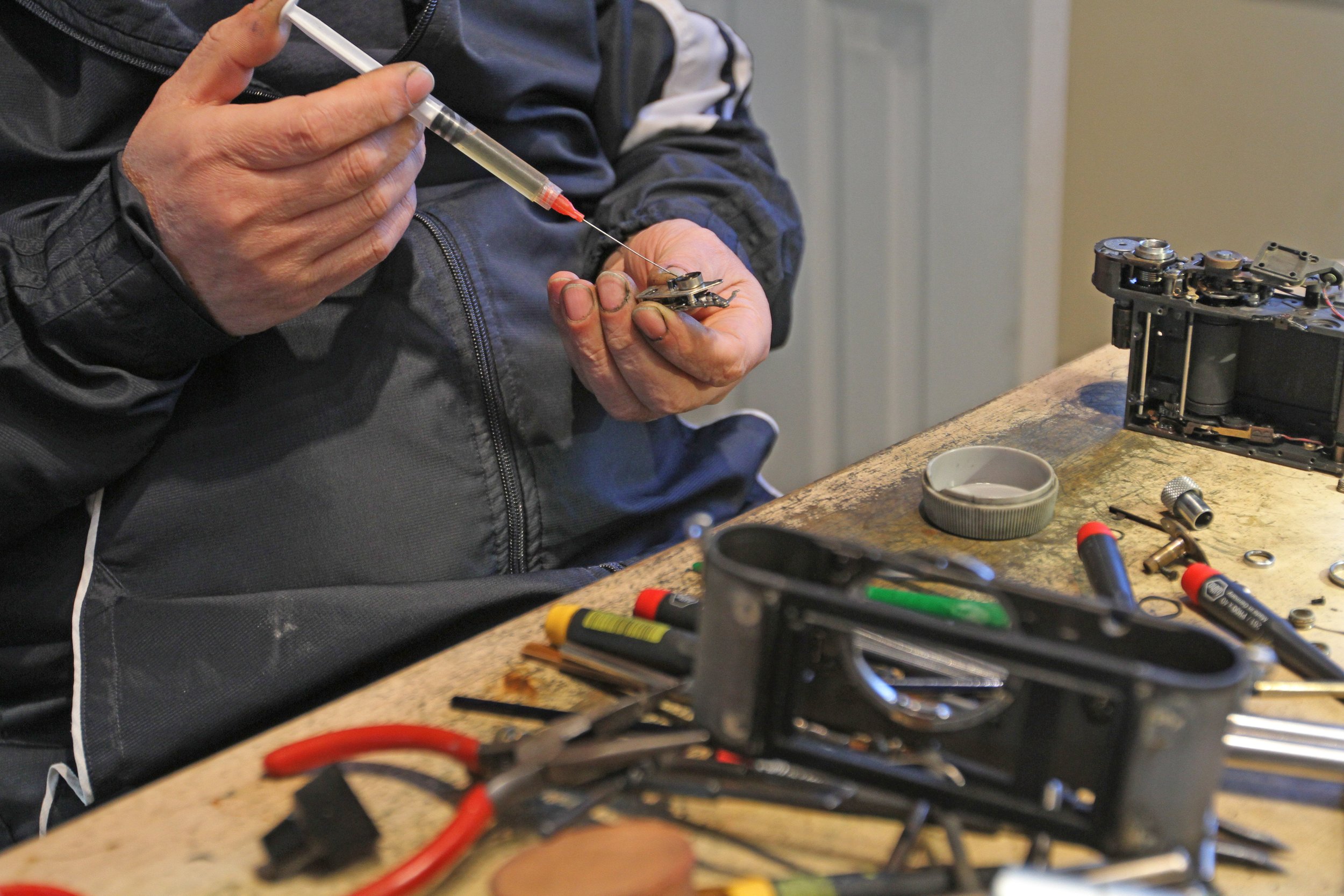
I told my wife, “Okay, you can’t go to work, but you can study lens.” Then she studied lens cleaning. She has masters degree in engineering. Good at chemistry. She has been cleaning lens since then, and I've been working on the camera. Since we're 100% dedicated to the Leica we are doing better. Customer base after that grew from 2 or 3 to now over 10,000 customers.
Until last year, I think DAG tell you about the same thing, Leica restricted part sales. They no longer sell parts in the United States. As far as we know only DAG and I got authorization to buy parts.
Gabe: So you two are the only ones who can still source these parts, is what you're saying?
Youxin: This is what we know. We’ve known each other 20 plus years, especially in the recent years we have frequent communication with each other.
Gabe: What is that work relationship like? When you can't do something, do you send it to him and vice versa? Or how do you guys communicate?
Youxin: We just talk to each other. If there’s anything I can’t do, I just tell people, “You have to go to him.” Other than that, with Leica, you can only buy new hardware and Don has done this for 40+ years so he has a lot of parts. He sells parts, sometimes I need parts you can’t get from Leica, then I go to Don. Leica doesn’t want you to know how to fix Leicas, they don’t sell repair manuals to the public anymore.
(I checked this out. Learn Camera Repair now has one of the largest collections of camera service manuals available to the public available to download for $1 each. Look through here.)
Gabe: Yeah, I was of curious about that. I'm curious about what you think about the future of repair because, you know, when talking to Don, I'm saying like, “Are you showing anyone this?” And he says he shows his son if his son shows interest in it. But in some ways, it feels like the last generation. What do you see the future of repair being, is anyone still learning the stuff? Do you think it it dies with you? How do you see that future?
Youxin: I don't know, I know Don works with his younger son. Don’s different. Don’s father was Leica golden year master technician. He inherited all the training, all the skill. I’m totally different. I learn everything myself. Just study and figure out everything. I think we’re the only ones come out like this, self taught. What you’re asking about, yes, it's possible. But some people ask me, you know, this question, what I tell people is it's all about work ethic. You know, even today my work schedule’s about 100 hours per week 365 days a year.
Gabe: What does that day to day look like? How many hours per day?
Youxin: 14 hours a day and 365 days a year without any breaks.
Gabe: That's a lot. How big is your how big is your staff?
Youxin: Just my wife and I. Two people.
Gabe: Just you guys. That's amazing.
Youxin: The other reason I work so much, go nowhere, is because I have several hundred packages. The Leica’s are more than the value of your house. If anyone goes away and somebody break in than you have to pay your customer.
As an immigrant I come from China’s cultural revolution. We didn’t have any education from elementary until high school. We had to catch up after that, after Mao died, after Cultural Revolution. When I graduated from college here I was 39 and I started my career as a 40 year old. You lost 15-18 years compared to normal people. I have so much loss I have to work so much longer, harder, in order to recover the loss in my life because I'm immigrant. When people ask me if I’m willing to train someone to work like this I ask, “Are you willing to work like this? Do have have the work ethic like this?” Even Don’s life you know his entire life is married to Leica. You don't have much freedom. It doesn’t matter who teaches you this, it’s the question of whether you’re willing to work like this.
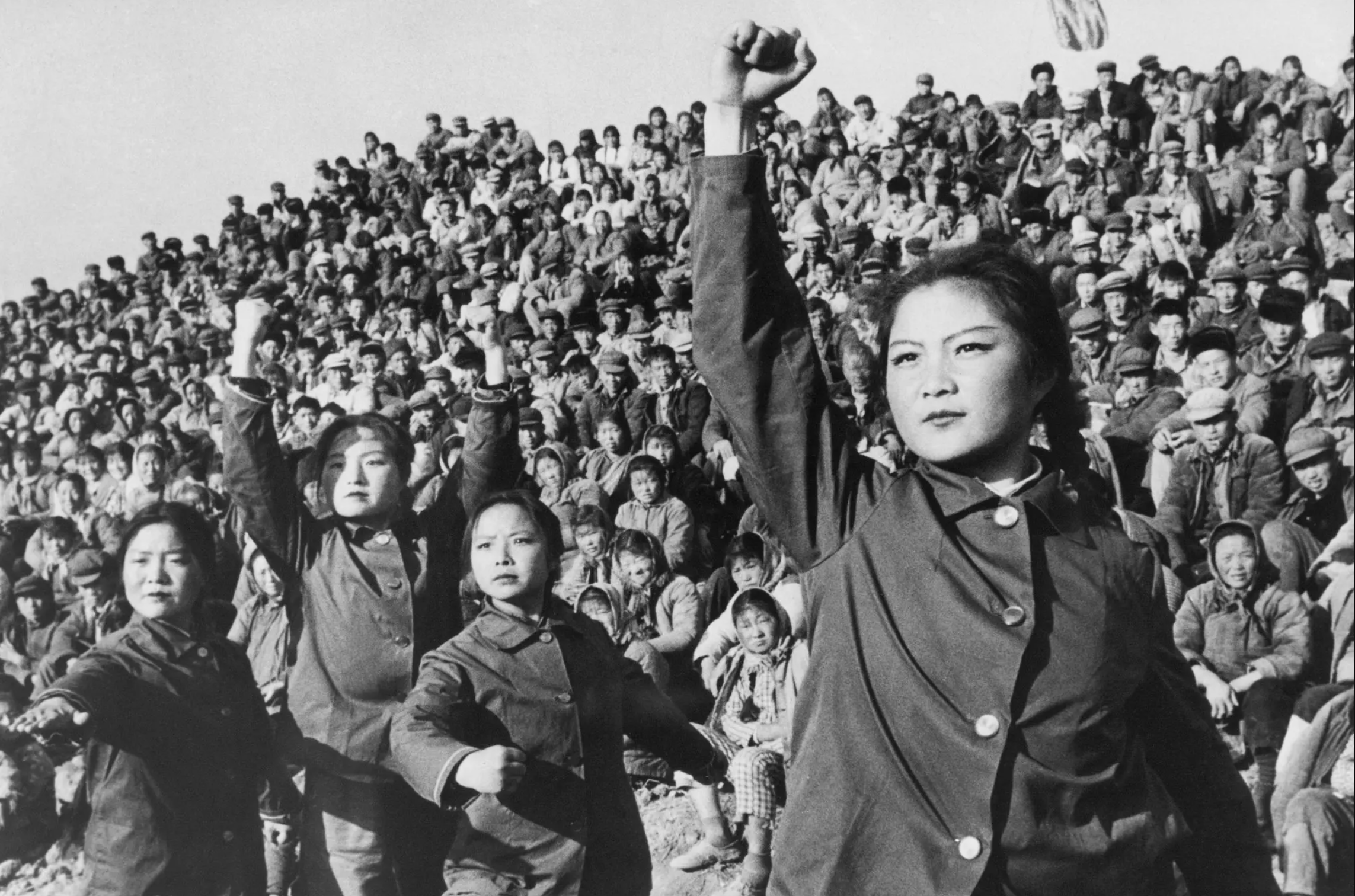
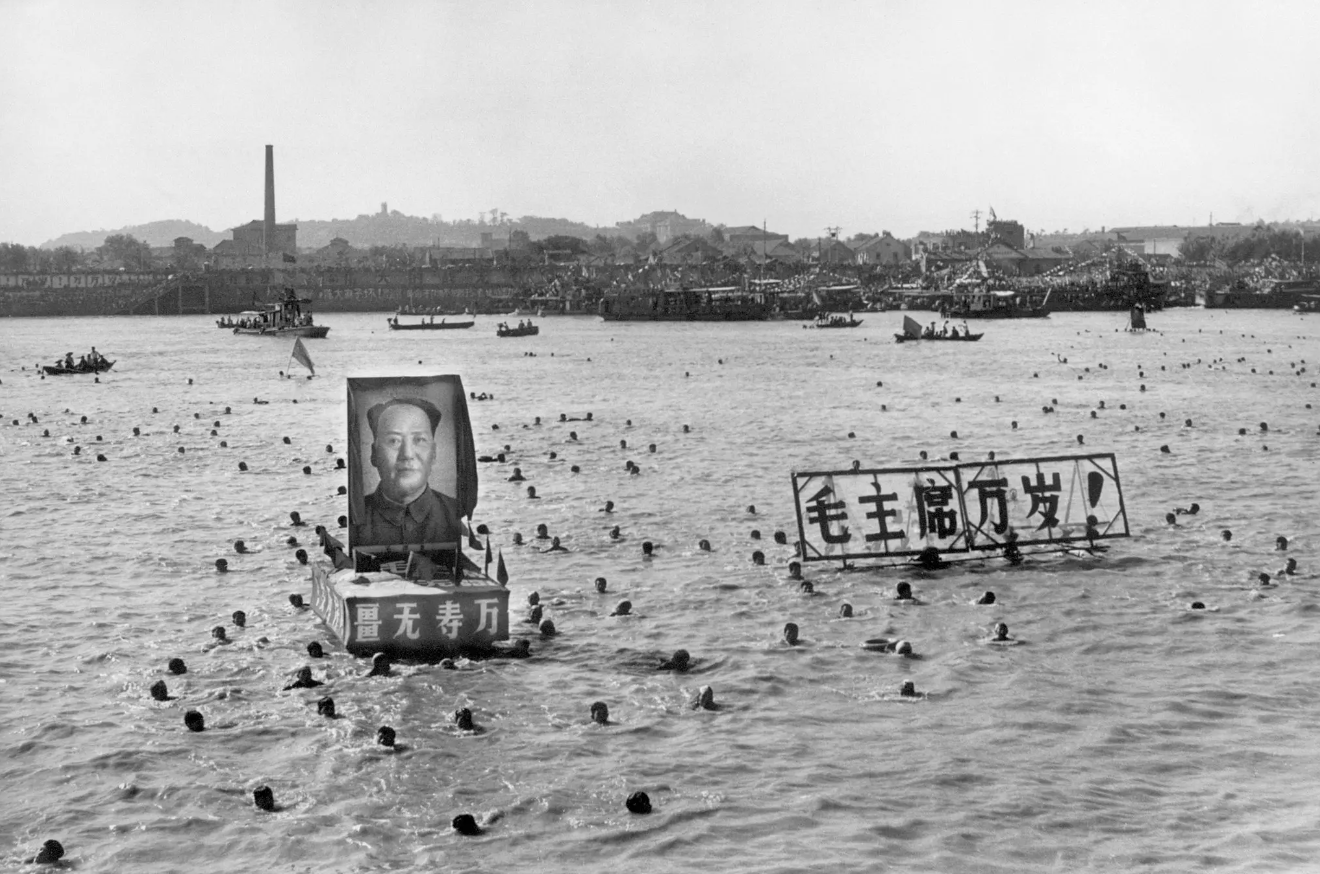

Gabe: Just being around these cameras so much and really getting your hands on them for so long, what's so special about this design? Why do you think these cameras mean so much to people? There's a lot of sentimental value that people have, even if they don't actively shoot with these cameras.
Youxin: Leica is a culture, other companies are business companies. Why? Despite digital today 35mm is still full frame. Since 1913 until today there is no change, over 100 years. Leica created a 35mm camera. The first one and the best one. They're the only complete European camera maker today, others they’re Japanese. As a complete factory they’re the only European one. Hasselblad only makes bodies, they don’t make lenses. The Japanese era killed most European makers, you don’t see them anymore. I mean, Carl Zeiss is owned by Sony today. They’re just a name, they're not the German ownership anymore. And the Voigtlander is owned by Cosina (Japanese). The major characteristic for Leica’s is a glass formula. Leica glass is different from any other glass. There’s a formula for the glass. In the low light there’s a distinguished color. When you have the right formula you can achieve red, blue, green in the same plane. On Leica the color is so accurate compared to any other film camera. They still make the new Leica film camera’s with no major change. Old is good, it's a proven classic design. Leica is more like an antique, like a VW Beatle, like an AK 47.
Leica M3 Ernst Leitz Vintage Print Ad 1957
I don’t know after 100 years if those cameras will still survive. It’s unpredictable you don’t know how big the market will be at that time. You know, maybe there are young people that would rather go to medical school and become an MD than work on Leica. They don't want to study something that gets obsolete. I have a friend who has a P.H.D., he studied Polaroid. One night digital came out he lost his job. He had to change his profession.
Gabe: I've heard that story a lot.
Youxin: I believe in my generation the classic Leica will be there, but for the next generation I have no idea. The material has aged. You see a lot of separations, silver coating aging, you know material aging become common. I don't know how long this will last. I had a store have me train their employees and also to let people know what’s the best M camera. What I tell people is MP is the best. The current production MP is the best. M2, M3 was great, but great for its era. You have to look back to the era. It’s just like golden era cars, you know, in the summer you see people drive the 1950s cars restored in the street. They’re fantastic. They're totally different, you know, they're beautiful. When you look at those they’re so impressive. But you have to understand, it's a great piece of art from his era. And there's a limit on available technology in that era. Nobody drive a 1950s Cadillac to go to work, they drive Honda Civic. They’re show cars.
Gabe: Right you have to have some practicality to the camera
Youxin: Yeah. Camera is very similar…
END.
Check out Youxin Ye’s camera repair services here
Watch Julien Jarry’s documentary profile here
Be sure to visit Nice FIlm Club for all your film development and scanning needs.




